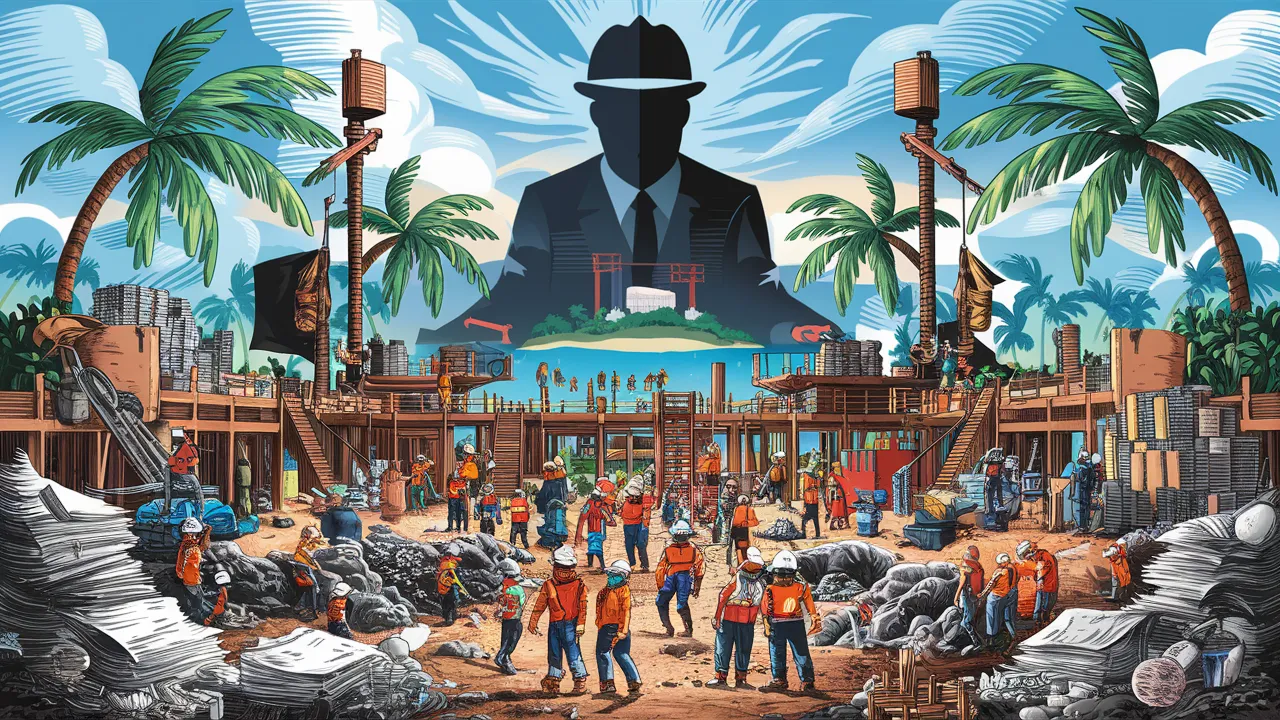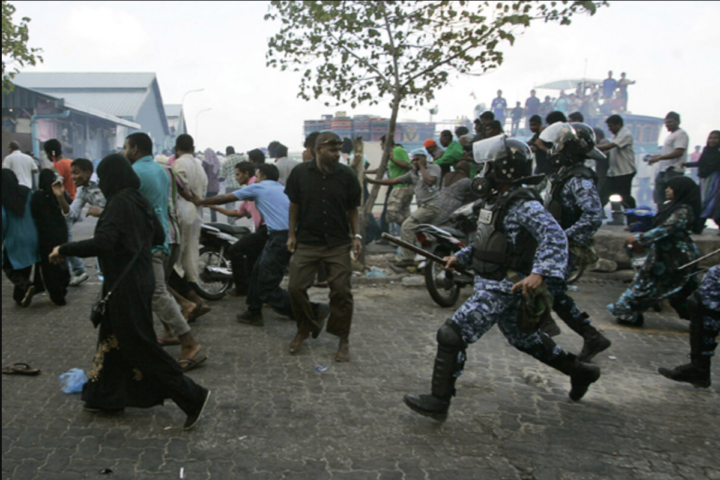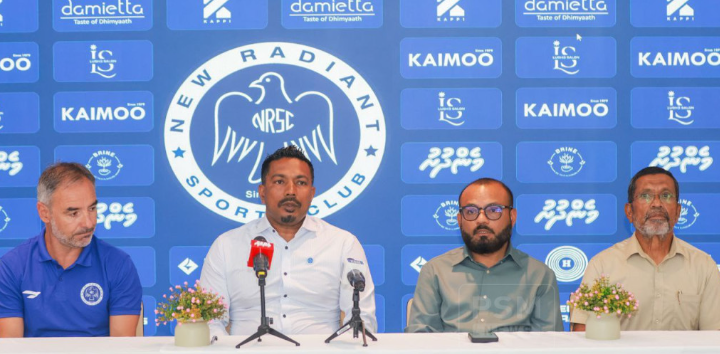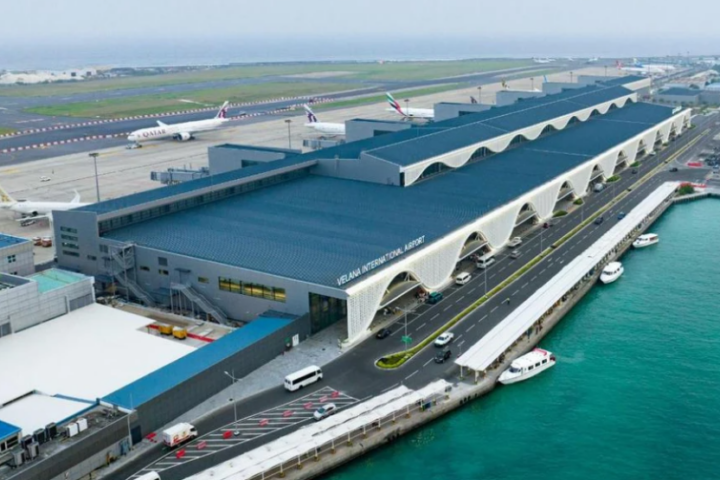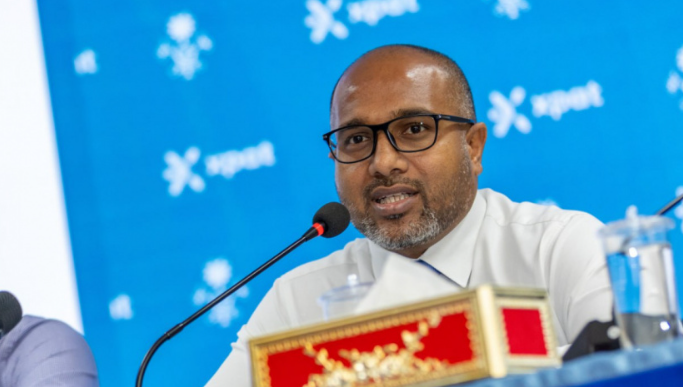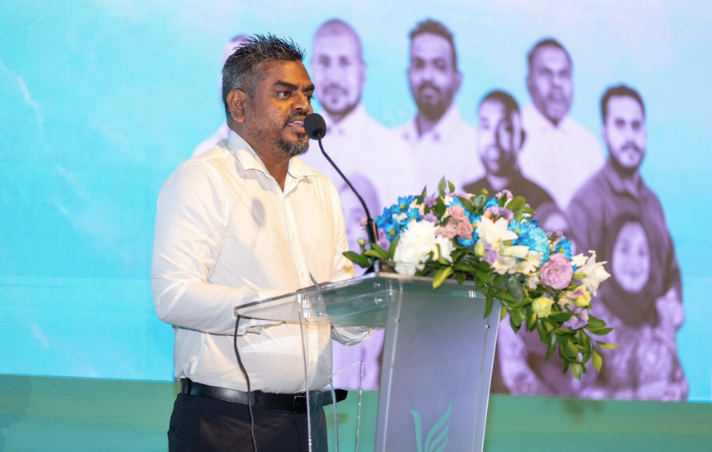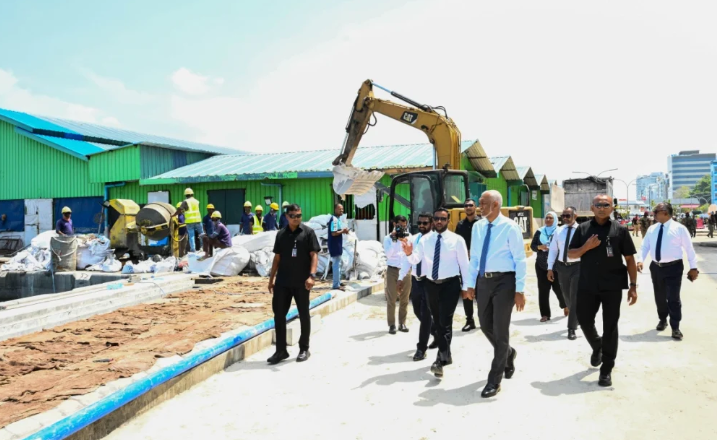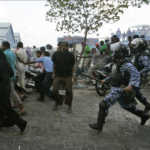Aazaad navigates the shady streets of the island with a resolute demeanor, reflecting on the four years he has spent in the Maldives. Despite the challenges, he finds contentment in the hard-earned income that supports his family back in Comilla, Bangladesh. Aazaad, 30yrs, says he earns an average of USD 26 to 32 per day for his labor, and if there is construction work at night, his earnings can range from USD 65 to 100, depending on the hours.
“There is plenty of work here on the island, but few able hands,” he notes, emphasizing the high demand for labor in the atolls.
Aazaad’s journey to the Maldives was fraught with financial sacrifice. To fund his migration, he mortgaged his family’s rice plot and paid a substantial fee to a district agent. Alongside 49 others from Comilla District, he embarked on a journey filled with hope and uncertainty. Contracted as a construction laborer, Aazaad spent two years in Male’, intermittently receiving his wages amid frequent delays.
His handler on the island disclosed that an undisclosed sum was paid to a local agent to secure Aazaad and his group from the original local agent, who secured the quota for the group, with each worker costing USD 2,000 for the subcontracted job. Aazaad pays the local handler a monthly sum, which is a percentage of his daily or weekly earnings. The local handler got the group after the expiry of the contract for a lesser amount, but he is not willing to disclose the exact figures.
Despite the hefty payments, Aazaad revealed that upon arrival, he and his colleagues were put to work immediately, without undergoing any medical checkups. Moreover, while supervisors possessed government-issued work permit IDs, Aazaad and his peers did not.
The situation for foreign workers in the Maldives came into sharp focus on June 4, 2024, when the Homeland Security Ministry announced that the state had MVR 1.7 billion (USD 111 million) in outstanding work permits, quota fees, and penalties.
The foreign workers’ quota system has long been mired in corruption, with successive governments failing to address the deep-rooted issues. In its first eight months, the current administration has grappled with these challenges. Reports from the Homeland Ministry indicate that two heads have already been replaced in the executive overseeing the quota system under Minister Ali Ihusaan’s leadership. The ministry revealed that 10,619 employers are accountable for 102,807 registered foreign workers, a figure that underscores the roughly equal number of unaccounted foreign workers labeled as illegal.
In a further announcement on Wednesday night, Homeland Security identified 1,026 entities that had not paid their fees, including those owing more than MVR 100,000 to the state. The list encompasses companies owned by government officials, members of parliament, and some of the largest corporations in the country. It also includes companies notorious for mistreating foreign employees and others previously untainted by such accusations.
While some businesses reacted anonymously, others publicly sought to clear their names. Their grievances centered on the lack of prior notice or warning before their details were disclosed. Several companies claimed they had agreements with the government to pay their dues in installments. Additionally, some have contracted and outsourced their expatriate handling to recruitment agencies.
“The labor issue needs urgent reform. Addressing the complexities of foreign labor and human trafficking is not just a matter of policy but of humanity, demanding immediate and sustained action.” Mohamed Ali Janah
Among the companies that came forward were Hotel and Resort Construction Pvt Ltd and Redwave, the owner of malls in Male’. Hotel and Resort Construction, owned by President Dr. Mohammed Muizzu’s advisor, businessman Mohamed Ali Janah, and Redwave, owned by Senior MP from PNC, Ahmed Saleem, issued statements clarifying their positions.
Redwave stated that their dues pertained to work permit fees and quotas and claimed discrepancies in their account details. Hotel and Resort Construction also refuted the ministry’s claims, arguing they had not been notified before the public disclosure. They stated that they have an agreement to pay the dues in installments and that the agreement is valid, making public notification unnecessary. The disclosure of the delinquent entities has sparked debate over the government’s handling of the situation.
Those who spoke on background for this feature say that a surgical cosmetic treatment will not be the remedy for this protruding national problem. Moreover, they assert that the matter should be investigated thoroughly, including the 25 reported cases of filaria emerging in Kulhudhuhfushi. Were these workers screened for medical checkups after arriving in the country, or were they put to labor immediately?
Moreover, the specter of human trafficking looms large. There are calls for the government or the Majlis to establish a panel to investigate human trafficking within the labor market.
EtruthMv approached Mohamed Ali Janah, President of the National Federation of Maldivian Employers (NFME), who spoke at length on the urgency of addressing this issue. Janah, known for his proactive approach to labor rights and reform, emphasized the critical need for immediate and comprehensive action: “The labor issue needs urgent reform. Addressing the complexities of foreign labor and human trafficking is not just a matter of policy but of humanity, demanding immediate and sustained action.”
As Aazaad and countless others continue to toil in the Maldives, their stories underscore the urgent need for reform. Addressing the complexities of foreign labor and human trafficking is not just a matter of policy but of humanity, demanding immediate and sustained action.
